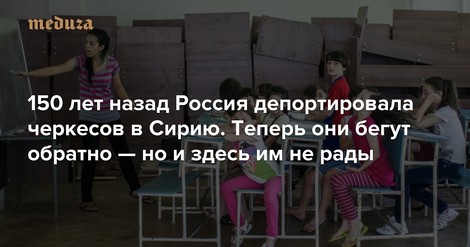Your podcast discovery platform
Curious minds select the most fascinating podcasts from around the world. Discover hand-piqd audio recommendations on your favorite topics.

piqer for: Globalization and politics Global finds
Neil Hauer is an independent analyst focused on Syria, Russia, and the Caucasus. Based in Tbilisi, Georgia, he served as senior intelligence analyst at The SecDev Group, an Ottawa-based geopolitical risk consultancy, for three years. He is presently engaged primarily on Russia’s role in the Syrian conflict.
150 Years Ago, Russia Deported Circassians To Syria. Now They're Returning – To Moscow's Chagrin
Few people worldwide are aware of the world's first modern genocide, the greatest (and possibly most thorough) of the 19th century. In 1864, having finally conquered the northwest Caucasus, tsarist Russia expelled as many as two million Circassians – over 90% of the population – to the Ottoman Empire. The civil war in Syria, where many Circassian families settled a century and a half ago, has caused many to return to their ancestral homeland, but they face no shortage of difficulty.
Meduza reporter Alexander Baev traveled to Kabardino-Balkaria (KBR), the North Caucasian republic with the largest Circassian population (and which has received the most migrants from the Syrian conflict), to see how the new arrivals are getting on. The answer: not well. Moscow has been loath to provide any aid to the recent returnees, and has fully refused to grant them refugee status or asylum. Those who have come have done so via invitation letters written to them by KBR residents, some of whom are their distant relatives from long ago (Kabardins are the eastern branch of the Circassian people). A number of Circassian civil society organizations in the North Caucasus, such as Peryt ("Vanguard"), have provided invaluable aid and legal support to their returning brethren. Moscow, meanwhile, has made it clear it would rather see them rot—having destroyed their homeland 150 years ago, Russian authorities have now played a large role in decimating the Circassians' country of refuge, Syria.
There are shades of hope in the story: the relentless drive of Circassian civil society, so resilient in the face of many obstacles. The Circassians themselves who have returned 'home' have proven steadfast, enduring many challenges. One wonders what their ultimate fate will be, but it seems certain they will find little but derision and barriers from their erstwhile government in Moscow.
